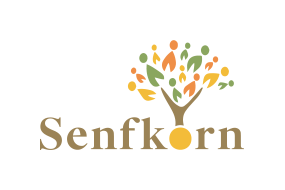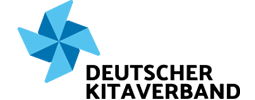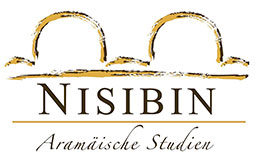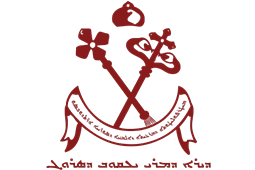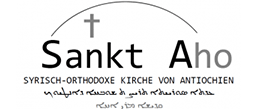Register a child

You are a parent or guardian and are interested in our German-Aramaic day-care center?
Please proceed as follows:
1. Download the application form (PDF) from this page.
2. Complete the required fields and sign the application form.
3. Email the signed application form to mail@senfkorn-kita.de or mail it to Senfkorn Kindertagesstätte gGmbH, Im Vogtland 17, D-33104 Paderborn, Germany.
Application_form_Kita_deutsch-aramäisch_Paderborn
You are welcome to sign up with the form right here as well:
Do you have any questions about registration, the concept and bilingualism?
Please have a look at our questions and answers (FAQ).
If you need any more help, email us or complete the contact form here and tell us how we can best reach you by phone. A personal meeting is a good idea, too. Together we will find a date to talk about your request in detail. We will gladly take this time.
Who will the educators be?
We are currently conducting some initial talks with potential educators. We will decide whom to employ in the course of the next few months. Important: The people in question must have appropriate qualifications.
The concept requires care based on the immersion principle. Immersion means that your child is in contact with the Aramaic language every day and able to become immersed in it, in a manner of speaking.
The Aramaic-speaking caregiver of your child offers the same activities as the German-speaking colleagues. She will only speak in Aramaic. This way, your child will not only experience the educational content of the activities, but also learn Aramaic at the same time. Most children become accustomed to using a second language quickly. Of course, the educators will act as the situation requires. The well-being of your child is the main focus. This means that if your child does not understand Aramaic or understands only a little Aramaic, the educators will, of course, speak German with your child. All Aramaic-speaking educators speak both languages.
How high will the parental fees be?
We are currently assuming the same parental fees the town of Paderborn charges for other public day-care centers.
How is operation of the day-care center financed?
According to our planned applications to the youth welfare office in compliance with the Child Education Act (Kinderbildungsgesetz; KiBiz), we will be able to cover the majority of the costs by subsidies. A deficit of about 8% remains. We must raise this money from sponsors and donations. We have already found some sponsors. Their number will be increased over time. Important information: A public and non-profit organization operating a day-care center must not generate profits. It serves only its own purpose. Certain purchases require additional financing as well. This makes it all the more important to support the day-care center with your donations.
Who are the founders and operators of the day-care center?
All founders and supporters are Suryoye who want to pass on the valuable heritage of us Suryoye to our descendants. Saliba Gabriel will be employed as managing director for the gemeinnützige GmbH (non-profit limited liability company) founded in Paderborn. He will have the task of taking care of the day-care project full-time. Once the day-care center in Paderborn is established and successfully operating, Saliba will also support other Suryoye communities in running their own day-care centers. He will pass on all knowledge about legal situations and challenges, all experience gained, etc.
Where will the day-care center be located?
It is planned to operate in Paderborn. Based on our analyses for the Aramaic-speaking households, 80% of which have settled around the town core, Stadtheide is our preferred quarter for the moment. Both churches/parishes are also nearby. Other quarters such as Schloss-Neuhaus, Elsen, Marienloh, etc., are still at an acceptable distance of max. five kilometers from there as well. Another essential item is that finding a property in the town core area is very difficult due to the current building boom. Intense queries have left us with two options for properties in Stadtheide at the moment. We have put down a reservation for construction of the day-care center on one property.
However, other social areas such as Kaukenberg, Auf der Lieth, Goldgrund, etc. are also attractive and would be suitable locations.
I don’t have a car. How can I bring my child to the day-care center?
We are currently working on this. One option would be to provide a transport service to take the children to and from the daycare center. Alternatively, carpools could also be formed.
How many children will the day-care center take in?
Our plan is for two groups of 20-22 children each. The higher the number of groups in the day-care center, the more economically a day-care center can be run. Local authorities and offices also prefer to see the day-care center run more than just one group. However, the bilingual offer may initially be limited to one group, to be later expanded to both. This depends on the number of children signed up and on the Aramaic-speaking educators.
Why is it important that I put myself on the applicant list?
Establishing the day-care center depends on financial support from the municipalities and offices. In order to be receive subsidies, we must proof sufficient demand. The project’s success, therefore, depends greatly on the support of parents who either already speak Aramaic at home or have a connection to it through their origin.
Please also note that the places in the day-care center will be limited initially. We will probably start with one group of 20 children. Therefore, we can only consider children who were on the applicant list. Signing up is not binding. The founders cannot currently guarantee a daycare place, as the center is still in the start-up phase. Vice versa, parents are free to decide whether or not to accept the place in the day-care center later. Commitment only arises through signing of a care contract.
At what age can my child be admitted?
In the first step, we plan with the group type I (children from two years of age until they start school) in accordance with the Child Education Act (Kinderbildungsgesetz; KiBiz). We may add an offer for children younger than two (“U2”) at a later time if required.
Frequently asked questions specifically about bilingualism:
What is bilingualism?
Multilingualism (also called bilingualism) is the ability to speak more than one language. There is a difference between growing up with two languages from birth (simultaneous bilingualism) or learning one language first and then (from about 3 years onwards) a second one (successive bilingualism). If the second language is acquired at the age of 6 to 10 years, this is called second language acquisition in childhood. There is also second language acquisition in adulthood.
What disadvantages does my child have with a bilingual day-care center? Will it have any problems learning German?
We rather focus on the advantages. All studies to date have shown that children who grow up bilingually perform even better than monolingual children. Their brains develop differently, and the synapses link even more strongly. Due to the fixed reference persons, the child learns both languages at the day-care center.
The language is, of course, not only dependent on the day-care center, but also to a large extent on the parental home. As a result, it is important that the parents speak both languages at home, if possible with a fixed reference person (e.g. the mother speaking Aramaic, the father speaking German, or vice versa).
What can you as a parent do to support your child’s multilingual development?
Bilingual language support means that each parent speaks to the child in their own mother tongue. On the one hand, this is to help the child learn the principle that a person speaks this one language. This shows the child from birth that this person will be sure to understand and use this one language. It also prevents your child from adopting the parent’s accent and any grammatical mistakes. Unaccented language is usually only possible if the person has learned the language as a mother tongue.
How can multilingual language acquisition be supported?
It is helpful if you as a parent speak to the child in your mother tongue (e.g. Aramaic). This can mean that you as a mother speak to your child in a different language than the father does (one person = one language).
At what age does my child learn a second language best?
The earlier a child speaks a language, the easier it is for them to learn it. Studies have shown that children learn languages with the same part of their brains that they use to acquire their native language before the age of four.
What are the advantages of early multilingualism?
Many children benefit from early learning of a second language. This includes better performance in school and problem-solving skills, but also greater creativity and a better understanding of complex matters. Even if the child loses their intense contact with the foreign language during primary school, they will relearn the language more quickly and better than other children in secondary schools.
The indirect advantages of early multilingualism include greater self-confidence and a heightened awareness of other and foreign cultures.
Does learning a second language harm my child’s knowledge of German?
In most cases, your child’s knowledge and skills in German are even strengthened by learning a second language. The comparison between two different languages helps the child to understand both languages better.
Is it more difficult for a child to learn two languages at once?
There is no empirical evidence of this. A child does not need to have any special skills or traits to grow up bilingually. As long as a child is surrounded by two languages from early childhood, they will learn them.
The majority of the world’s population is growing multilingual.
Example countries are: Belgium (Dutch, French, German), Switzerland (German, French, Italian, and Rhaeto-Romanic), Italy (Italian, regionally also German, French, Ladin, and Slovenian), Canada (English and French), South Africa (Afrikaans, English, South Ndebele, isiXhosa, isiZulu, North-Sotho, Sesotho, Setswana, Siswati, Tshivenda, Xitsonga) and many others.
What consequences does growing up bilingually have for identity?
By providing a very convenient access to other cultures through language, bilingualism is of advantage for identity development of a person growing up with several languages. It is a way to share and learn about other cultures. It provides insights into different cultural rules and customs. As a result, one’s own identity can develop better. This happens through interaction of the principles of belonging and demarcation. In the course of a lifetime, a person learns to take on different social roles, which change in the course of life (e.g.: daughter or son; sister or brother; student; employee). Bilingualism allows children to not only grow up with two languages: They are also growing up with and in two cultures, which shapes the child’s development.
